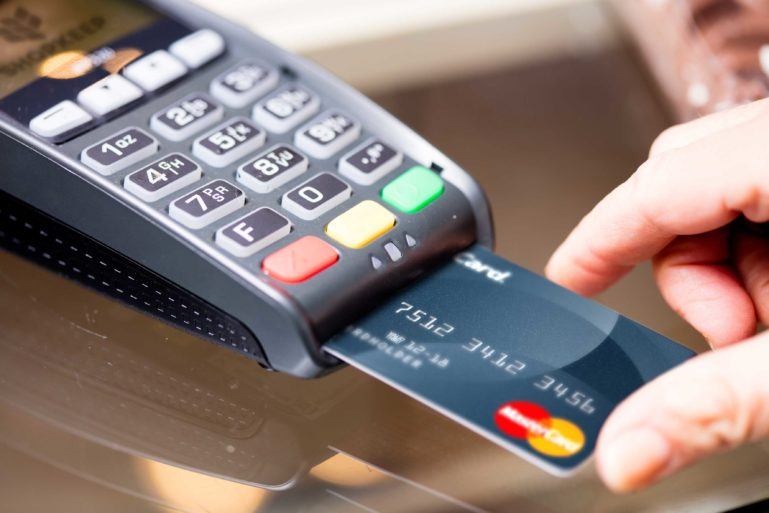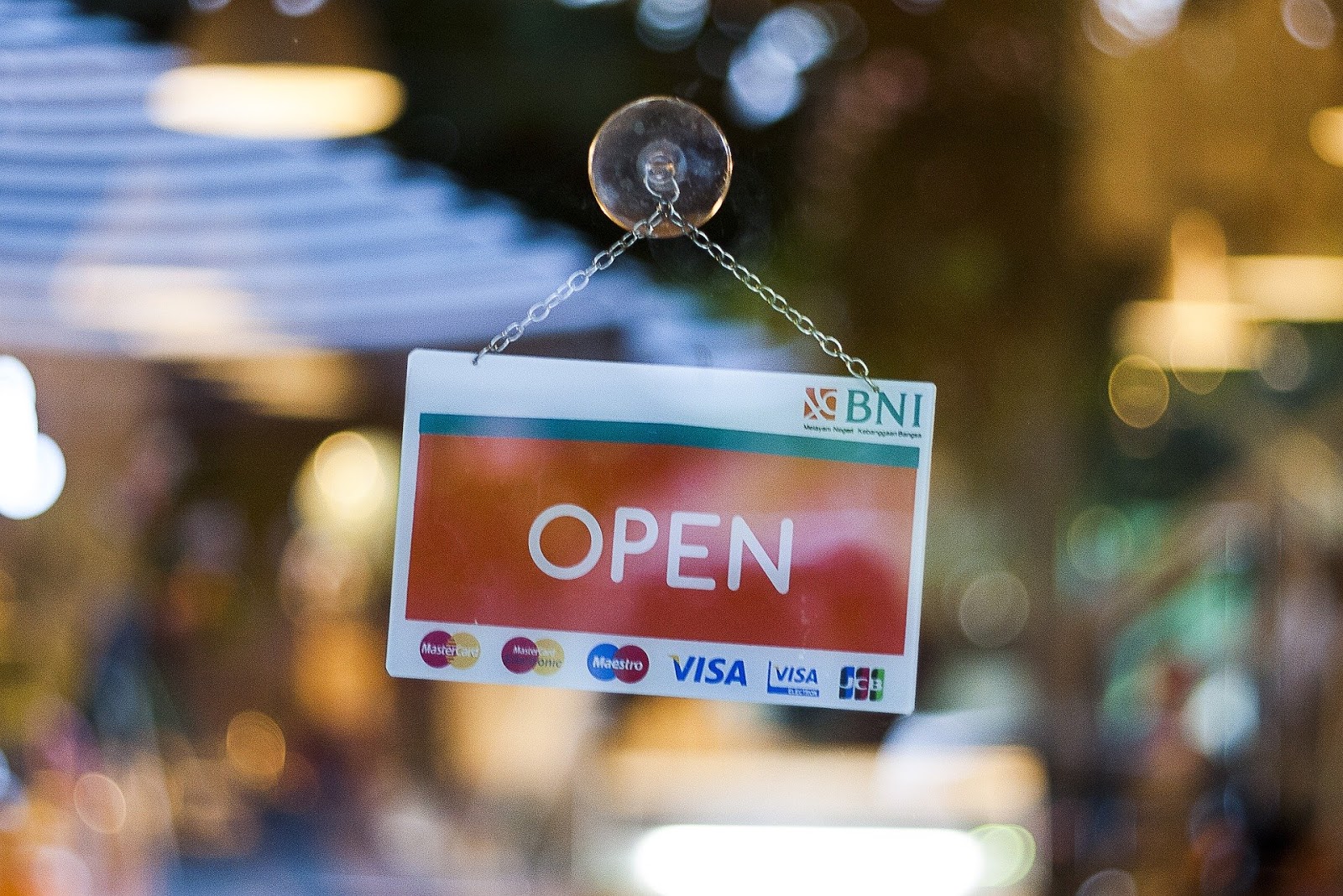
Saving on credit card processing starts with choosing the right POS system. However, that’s clearly easier said than done. The means of accepting payments is the first thing you need to consider. Are you doing most of your business at a physical location, online, or both? Do you have growth plans? Do you want to take payments offsite? Your contactless credit card machine payment processor can help you choose everything you need including hardware, software and peripherals.
Table of Contents
Types of POS systems
Generally, there are the following types of POS systems: mobile POS terminals, standalone terminals, and integrated POS systems. Integrated POS systems offer robust features in an all-in-one solution. Integrated POS systems are the best option as they feature a host of functions like reporting and analytics, inventory and accounting management, payment processing, loyalty systems and more.
These are often designed for certain industries with integrated features that address those specific business needs. For example, retail POS systems have functions that simplify pricing changes and inventory tracking, while restaurant POS systems have software to manage menus and bar tabs.
When you first start out, figuring out the best ways to accept credit cards online can be overwhelming. It is the basis of your ecommerce operation and an unavoidable expense to consider when selling online. You simply have no business if you can’t take payments online the right way.
Accepting Credit Card Payments Online: The Stats
- The average business loses 5% of revenues to fraud every year.
- More than 1/3 of consumers hesitate to shop online because of security concerns.
- 50% of small businesses fall victim to fraud at some point in their business lifecycle.
- Resolving fraud costs an average of $114,000 each time.
Beyond fees, fraud, and conversion, your choice of credit card processing can make or break or brand’s options of global expansion. Are buyers from different countries going to trust you if you want to go international? What about your chosen solution? Will it work cross-border?
There are lots of issues to consider when you add the fine print and each provider’s fees and contracts to the confusion. You need to take a wide variety of factors and their impact on your business into account. There is no right or wrong answer.
Your POS System as a Business Hub
Your POS system is the main hub of your business. These systems manage transactions, track inventory, and provide business analytics. Some POS systems accept credit card payments as they come with payment processing.
You will need a POS system to help you with customer interactions if your business involves in-person sales. You need an ecommerce or digital POS platform that will let shoppers buy from your site if you’re selling online. Whatever the case may be, you can select between an all-in-one solution that has built-in payment processing or a POS that will require third-party payment processing.
If you are a small business and want to keep things simple, we recommend opting for an all-in-one solution that has POS, payment processing, and merchant services built in. On the other hand, bigger companies would do better to choose a separate merchant account. Most small and medium sized enterprises are happiest with an all-in-one system.
What to Look for in a Credit Card Processor?
Companies like First Data customize their pricing, basing rates on your average monthly sales volume, your industry, the products or services you sell, payment acceptance methods, and sales ticket sizes. This is why the fees and rates you’re quoted may differ from those you will see online. High-volume companies may be able to negotiate for a better deal.
There are two tiers for retail processing: qualified and non-qualified. You’re accepting payment cards at a physical location using a card reader. The tiers apply to both credit and debit cards.
This company’s rate for qualified, regular debit and credit cards is 1.89 percent plus 15 cents. Rewards cards and other non-qualified credit and debit cards cost 2.89 percent plus 15 cents. The rate on PIN debit transactions is 39 cents each. Industry-specific programs, tools, and data are available to merchants in education, financial analysis, corporate billing, healthcare, gambling and gaming industries, and the government.
The company offers every method of payment acceptance, so debit and credit cards can be accepted online, at physical stores, by phone, and on the go using just a mobile app and your phone. You can also accept electronic checks using this processor.
If you’re a merchant based in North America who is located near travel destinations popular with Chinese or Middle Eastern tourists, you can accept payments via Alipay. PCI and EMV compliance are two important factors that help prevent fraud and limit liability. All of your processor of choice’s processing equipment should be EMV compliant so that it accepts chip cards properly, avoiding liability if fraud happens to take place at your point of sale.
Integrated POS Systems
These systems feature easy-to-use graphical interfaces, complex, customizable feature sets, and convenience for business owners and their staff. The most basic kind are standalone terminals, which accept credit and debit cards by dipping, swiping, or tapping to make payment. They’re intuitive, cheap, and simple to set up. Usually, they cost less than other payment solutions. They are ideal for businesses that don’t need assistance with inventory tracking, reporting, accounting reconciliation, or staff management.
Bundled Credit Card Processing Plans
A number of credit card processing companies offer options for various types of structured accounts. Find out more about how it works by negotiating with your potential credit card processor. Apart from tiered payment plans, there are also flat rate and interchange plans. With tiered ones, you have different tiers that combine interchange rates for fee transaction type and different card type. It’s hard to find out what contributes to the total amount based on the one-time fee. Be warned that this type of plan is the easiest way for a credit card processor to increase rates silently and is hard to negotiate to top that off.
Hi, I am an Author who believes in making the life of their readers interesting with his writing. Writing was always my first interest. Ever since I was a teenager, I was already into writing poems and stories. Today, I have gained a great experience in my work. Check out my work and share your views.
RELATED ARTICLES
Latest Articles
 Unlocking Success: Mastering Bank PO Interview PreparationIn EducationApril 24, 2024For banking careers, PO interviews stand as formidable […]
Unlocking Success: Mastering Bank PO Interview PreparationIn EducationApril 24, 2024For banking careers, PO interviews stand as formidable […] The Strategic Value of Purchasing FontsIn TipsApril 18, 2024In today’s visually driven world, fonts are more […]
The Strategic Value of Purchasing FontsIn TipsApril 18, 2024In today’s visually driven world, fonts are more […] Revolutionizing Business: How AI Transforms Customer Experience in the Inflatable IndustryIn BusinessApril 16, 2024Inflatable water slides are the epitome of summer fun, […]
Revolutionizing Business: How AI Transforms Customer Experience in the Inflatable IndustryIn BusinessApril 16, 2024Inflatable water slides are the epitome of summer fun, […] Most Asked Microservice Interview Questions For 2024In TechnologyApril 2, 2024To keep up with changing trends in the tech industry […]
Most Asked Microservice Interview Questions For 2024In TechnologyApril 2, 2024To keep up with changing trends in the tech industry […] Best JavaScript and CSS Library In 2024In TechnologyApril 2, 2024With the ever-expanding functionality of web […]
Best JavaScript and CSS Library In 2024In TechnologyApril 2, 2024With the ever-expanding functionality of web […] Front-End Development Trends to Follow in 2024In TechnologyApril 2, 2024For better engagement, the front-end development of […]
Front-End Development Trends to Follow in 2024In TechnologyApril 2, 2024For better engagement, the front-end development of […] Simplifying Mealtime: Meal Prepping for a Family of FourIn UncategorizedMarch 22, 2024In the hustle and bustle of daily life, planning and […]
Simplifying Mealtime: Meal Prepping for a Family of FourIn UncategorizedMarch 22, 2024In the hustle and bustle of daily life, planning and […] How to Freeze Dry Candy With And Without a Machine?In FoodFebruary 27, 2024A candy lover constantly searches for novel and […]
How to Freeze Dry Candy With And Without a Machine?In FoodFebruary 27, 2024A candy lover constantly searches for novel and […] How to Get Something Out Of Your Eye Immediately?In healthFebruary 27, 2024Getting something inside your eyes can be frustrating […]
How to Get Something Out Of Your Eye Immediately?In healthFebruary 27, 2024Getting something inside your eyes can be frustrating […] The Evolution of Remote Control Technology: From RC Cars to DronesIn TechnologyFebruary 22, 2024Remote control technology has come a long way since […]
The Evolution of Remote Control Technology: From RC Cars to DronesIn TechnologyFebruary 22, 2024Remote control technology has come a long way since […] Unveiling the most popular carnival costumes: A colorful parade of creativityIn FashionFebruary 19, 2024In the world of festivities and merrymaking, few […]
Unveiling the most popular carnival costumes: A colorful parade of creativityIn FashionFebruary 19, 2024In the world of festivities and merrymaking, few […] Custom GPTs: The Next AI Opportunity for BusinessesIn Business, TechnologyFebruary 14, 2024The rise of artificial intelligence has transformed […]
Custom GPTs: The Next AI Opportunity for BusinessesIn Business, TechnologyFebruary 14, 2024The rise of artificial intelligence has transformed […]
stopie.com is a participant in the Amazon Services LLC Associates Program, an affiliate advertising program designed to provide a means for sites to earn advertising fees by advertising and linking to Amazon.com.
Clicking on an Amazon link from stopie.com does not increase the cost of any item you purchase.
We will only ever link to Amazon products that we think our visitors may be interested in and appreciate learning more about.



